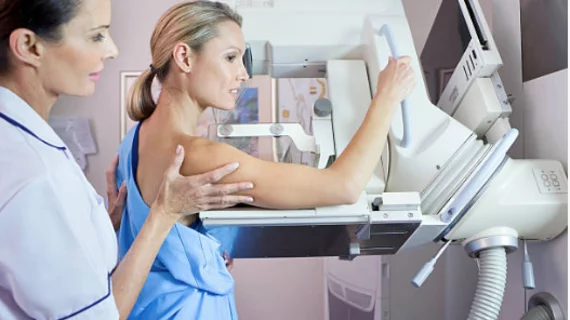3D mammography detects 34% more breast cancers than traditional methods
A multi-year Swedish study found three-dimensional (3D) mammography detected over 30 percent more cancers compared to traditional mammography, according to a new 15,000-woman study published in The Lancet Oncology.
"With breast tomosynthesis, 34 percent more cancer tumors were detected compared to the current standard mammography screening,” said lead author Sophia Zackrisson, PhD, in a statement. “At the same time, we were able to reduce the compression of the breast during examination, something that may encourage more women to participate in screening.”
Zackrisson, and colleagues screened 14,848 women between January 2010 and February 2015 at Skåne University Hospital, Malmö, Sweden.
All participants, ages 40-74, underwent two-view digital mammography followed by one-view digital breast tomosynthesis (DBT).
A total of 139 breast cancers were found in 137 of the women in the study, Zackrisson et al. reported. DBT achieved a higher sensitivity than digital mammography (81 and 60 percent, respectively). Specificity was lower for DBT (97.2 percent) compared to digital mammography (98 percent).
DBT detected 8.7 cancers per 1,000 women screened, compared to the 7.3 cancers found by digital mammography in the same ratio of women.
"There is a need to improve screening for many women, and breast tomosynthesis is clearly the most appropriate method to transition to in breast cancer screening. Breast tomosynthesis will be introduced, it's just a question of when and to what extent", said Zackrisson.
The researchers did report they needed to call back more women for additional exams when using DBT in order to confirm those women did not have cancer. They noted this was because tomosynthesis detects more structures in the breast overall.

